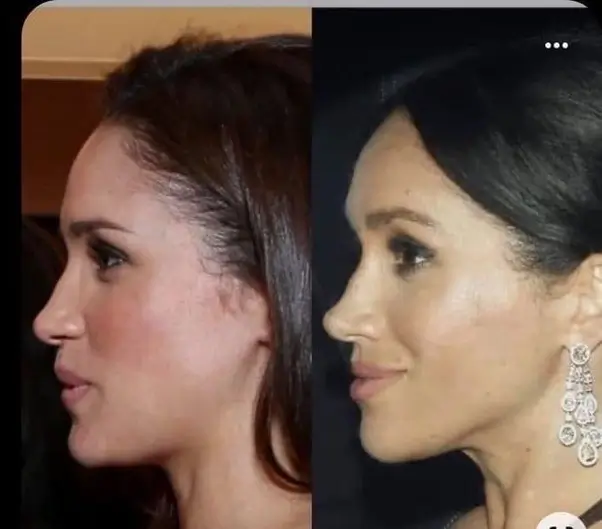Relationship experts have made some revelations on maintaining a meaningful relationship that stands the test of time can be one of life’s toughest challenges, particularly as a romance evolves and changes.
Love experts Shawntres Parks and Betsy Chung have detailed the various stages of a relationship, and explained how couples can make it through every phase and come out stronger in the end, per DailyMail.
From the first six months of a love affair, which includes butterflies and euphoria, to the multiple years of uncertainty that can often make or break a couple, recognizing the five stages can help you and your significant other last.


Speaking to Women’s Health, Shawntres Parks, PhD, licensed marriage and family therapist, explained how relationships change ‘directly correlates with how the people are changing.’
She said if you are working on yourself and engaging in more self-development activities then your relationship will ‘grow in a more positive way.’
The marriage therapist noted that the stages could be consistent or non-linear, depending on the circumstances that cause shifts within your romance.
She explained there is a greater likelihood of a change when ‘when there are other circumstances that arise that kind of shift the order of things.’
Another relationship expert echoed Parks, emphasizing that those who are more open to growing and changing together and the best love affairs.
‘Couples that are most successful are open to change, and willing to navigate ups and downs of relationships together,’ said Betsy Chung, PsyD, licensed clinical psychologist and relationship expert from California.
The love experts noted that while difficult, couples can make through each stage.
They explained the key in every stage was healthy communication as well as investing in yourself, while allowing your partner space to grow.
Pack on the PDA and ignore the red flags! Welcome to the honeymoon stage, which lasts up to six months after the relationship begins

This phase comes at the very beginning of your romance and brings new relationship energy into every aspect of your life.
The honeymoon phase sees you and your beau feeling euphoric and constantly longing to see each other.
It marks many laughs, fun dates, intimacy and butterflies. Although you and your partner are still getting to know each other during these first few months, you will feel like they are your perfect match and romanticize every aspect.
Chung explained you both may be on your ‘best behavior’ during this period. In addition to romanticizing your connection, you will likely start to ignore many red flags that pop up during these first few months.
Parks said: ‘There’s kind of this symbiosis where everything that the person you’re attracted to likes, you like their views and perspectives you tend to align with.
‘Everything that you’re seeing is kind of from the idealized perspective.’
Because you are so obsessed with your beau, you may also begin to prioritize them above everyone and everything else in your life.
This could cause your relationship to spoil soon after the loved-up phase is over, which is why the relationship experts suggest you keep up with your personal life and invest in your friendships as well as yourself.
Bring on the arguments… the uncertainty stage, which is from six months to two years into the relationship, sees you becoming irritated with your partner over the little things

This is the phase that those rose-colored glasses come off and all the previously-ignored red flags look a lot clearer.
In the uncertainty stage, you may begin to recognize the small things that your partner does that you find completely and utterly annoying, and make them seem far less than perfect.
The flaws you uncover may cause you to question the relationship and re-consider whether they are your perfect match. And while conflicts may begin to arise, it still feels quite mild.
This is because you are your partner haven’t gotten to a place where you feel comfortable discussing more serious issues.
During this stage, you often feel disappointed that the relationship isn’t what it used to be, and may find yourself reflecting back to when you were in the honeymoon phase frequently.
Chung noted this is also the period of time you may ‘engage in sabotaging behaviors such as dating other people or starting arguments.’
To get through this phase the relationship experts recommend reminding yourself that your partner is only human and has both positive and negative traits that may not always make you happy.
The love experts suggest you focus on how your beau makes you feel instead of the little things that may bug you.
Time to talk about deeper issues! the adjustment phase, which is after two years, sees you and your beau arguing about cultural or religious beliefs

If you are able to see past the small annoyances, you and your partner will then be met with conflicts and incompatibilities that could be harder to work through.
During this stage, you may begin to argue about cultural or religious beliefs and morals.
Parks said: ‘You’re having to negotiate whatever those challenges are in order to see whether or not this relationship is viable to transition into a long-term partnership.’
At this stage, couples often want to make the relationship work for the time being, however, have yet to decide whether or not they see a future with each other.
The relationship experts recommend you and your partner try your best to solve issues together.
A sign of a great relationship that will make it through the adjustment phase will be on that sees both parties working to practice healthy communication skills, however, this can be harder for those who aren’t as attached to each other.
Chung explained that you should begin to look out for ‘unhealthy’ relationship patterns that form during this phase, such as your partner giving you the silent treatment after an argument.
Learning to compromise and listening to each other will help you and your beau have a better understanding about your beliefs, which will help you navigate your differences.
Start to think long term! The commitment stage, which is after two years, will have you r partner thinking about next steps

Once you make it through the adjustment phase, you will enter the commitment stage. This period sees you beginning to accept your partner’s flaws, and becoming more comfortable around each other.
You and your beau will also begin to think about staying with each other long-term during this time.
Parks noted that many couples often believe that when they reach a deeper emotional level their sexual intimacy may fade away. She advised couples nurture their relationship and intimacy during all of the five stages.
Parks explained that keeping the spark alive during the relationship is the responsibility of both parties and requires continued work.
During this stage, you and your partner will begin feeling so comfortable with each other that the relationship may feel more like a routine then a romance.
The love experts recommend you stay objective as to why you are in the relationship, because couples in this stage tend to stay together because they feel guilty ending it or because they are scared of getting out of their comfort zone.
In this stage, you’ll want to make sure you stay objective about the reasons as to why you’re in the relationship, because it can be easy to stay together just because you’re comfortable with your routine or feel guilty ending it.
Pure bliss! The acceptance stage, which is after five or more years, will have you and your beau feeling secure in your relationship

After getting through a number of obstacles together, you and your partner will feel an even closer bond.
This connection will bring you the final stage – acceptance, which is the ‘optimal’ stage for couples, according to Chung.
During this stage, you and your beau have a bond that is considered irreplaceable and makes the both of you feel secure.
You both understand and support each other’s endeavors and know that you will be there through personal goals, job changes, and more.
At this time, your beau should be the first person you would call during a time of emotional distress. This is often the period of time you hear couples refer to each other as their ‘best friend.’
This is because they have gone through every stage and have grown with each other.
However, relationship experts explained that you shouldn’t forget about taking care of yourself during this time, because as you become more connected and attached to a person it becomes scarier to lose them.
The love experts suggested you invest in yourself and your friendships so you aren’t dependent on your partner at all times.















